Post-Surgical Massage
Massage therapy can hasten the healing process after surgery and help to alleviate pain, inflammation, restriction, soften scar tissue, increase range of motion and restore normal tissue function. Techniques we use include:
Lymphatic Drainage – a light-handed therapy that increases the body’s natural uptake of the fluid that surrounds tissue, resulting in decreased inflammation and pain and increased circulation and range of motion. This technique also boosts immune system function and calms the sympathetic nervous system.
Myofascial Release – a technique that stretches and elongates fascia, the continuous band of connective tissue surrounding muscles to release restrictions that can compromise optimal function of the musculoskeletal system.
Deep Tissue Massage – this style of therapy does not need to be “deep” or painful to produce results, but rather works to release all layers of connective tissue by breaking up adhesions and scar tissue.
What Are the Benefits of Post-Surgical Massage?
Massage therapy can benefit healing after any surgery. Studies have shown that general
massage stimulates the release of endorphins in the body, promoting a pleasure effect that
reduces pain and anxiety and promotes restful sleep.
You can begin receiving Post-Surgical massage as early as 72 hours after your procedure depending on your mobility and type of procedure received. Multiple props may be used and other position modifications to make sure you are as comfortable as possible and can receive treatment safely. We are always happy to connect with you to make sure massage is appropriate for you and that you know what to expect from your session. Some common procedures we work with are listed below.
- Joint replacements
- Cosmetic
- Cancer
- Breast reconstruction
- Spinal
- Orthopedic
- Abdominal
You can also find information about lymphatic self-care after plastic surgery at this resource page.
Our Approach to Post-Surgical Massage
Each body that lands on our tables is a collection of their previous injuries and use patterns that led to where that body is today. We use a combination of assessment techniques and feedback from our clients to develop a treatment plan that is unique to our clients needs. Every person also responds differently to the techniques we use so we rely on feedback from our clients to ensure that their body is responding in a productive way that supports their goals for the session.
What makes post-surgical massage different at Loosen Up?
- Focus on learning about our clients’ health goals
We love learning about what motivates our clients and helping them achieve their health goals by creating unique treatment and self care plans to suit their needs. - Collaboration with our clients and their health team
We work with many local Surgeons, Doctors, Physical Therapists, and Chiropractors to ensure that our clients are getting care that supports the plans that they have developed. - Many modalities offered by experienced practitioners
Many of our practitioners have been in practice for 20 years or more. Each of our therapists have unique skill sets and we love referring clients to the practitioner that can best support them.
What to Expect From a Post-Surgical Massage Session
Your therapist may choose to implement several techniques from a variety of disciplines so it is always a good idea to come prepared.
Drinking plenty of water, doing some light exercise and stretching, and wearing athletic clothing to your appointment will help you and your therapist to get the most out of your time with us. Remember your goal is our goal so communicate with your therapist what your priorities are: reduce pain, improve range of motion, etc.
What to Do Before Your Session
- Get a diagnosis if you’re experiencing severe or persistent pain.
- Take note of activities that aggravate or provide relief for you.
- Drink plenty of water.
- Eat a light meal.
- Get some light exercise and stretch.
What to Expect During Your Session
With post-surgical related work, we are typically working with clients who are in a recovery process so there is usually some soreness present. It’s important to tell your therapist if you are feeling yourself tense up or if you are holding your breath. If your body is fighting the work because it’s too intense, the work can become counterproductive.
Book Your Post-Surgical Massage Session Today
Whether you’re looking to rebound from hard training, recover from injury, or looking for a competitive edge, book your post-surgical massage appointment today!

